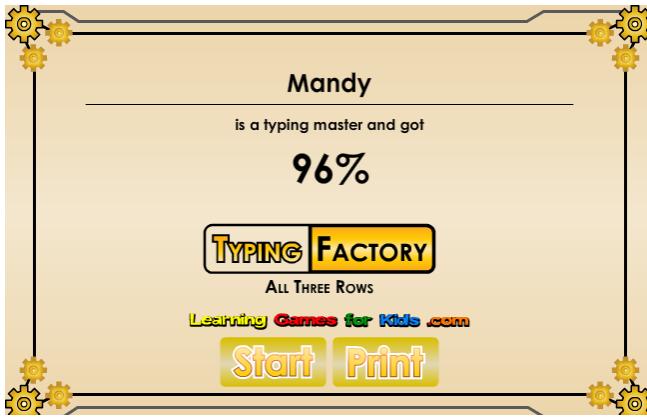Last night I met a middle school technology teacher and I asked her what her students learnt in class. She shocked me by replying “keyboarding”. The heightened level of shock may have been due to the St Patrick’s Day drinking that preceded my question but I had expected her to say digital literacy, e-safety, perhaps a little programming, or worst case scenario, that her students learnt how to use different software packages, perhaps Google Apps or Microsoft Office. The last thing I expected to hear was “keyboarding”.
My shock turned to frustration on behalf of her kids. How boring to be drilling through qwerty keyboard exercises – exercises that haven’t significantly changed since I learnt to type in 1976! How can these kids possibly be engaged! They must be using games like tux-typing (open source option) or other games like 2Type (I first tried this out in 2005), or maybe they have gone all out and bought TTRS ? My new tech teacher friend (NTTF) responded that the problem with typing games are that the kids get too into trying to achieve success in the game and forget that they are aiming to “master the home keys”, though she did mention Dance Mat, from the BBC and, ironically, just one small part of its great looking KS2 (grades 2-6) Computer Science and ICT course.
My NTTF obviously uses games sometimes but mainly relies on repetition whilst walking around the class correcting posture and fingering errors. Horrendous memories flooded back of drilling on a manual keyboard belonging to a big black monster object which looked similar to this:

Aaaa, ssss, dddd, ffff, asdf, asdf, qaz, wsx, edc, rfv tgb – oh the joy of graduating to “The quick brown fox jumps over the lazy dog”. If I can’t type that phrase now quickly and comfortably on a new keyboard then that keyboard just ain’t good enough.
But this morning, when the effects of the St Patrick’s day Guinness had worn off, I questioned my knee-jerk response to my NTTF. After all it was only 10 years ago that I visited my own secondary school’s feeder primary schools in the UK strongly recommending that they use some of their ICT teaching time with their years 5 and 6 to teaching typing skills. My argument was that students who were able to touch type were more confident on computers in KS3 (grades 7-9) and finding it easier, and much faster, to produce the coursework requirements for GCSEs (grades 10/11) – and in the KS3 ICT curriculum at secondary school there was no space for teaching typing skills (there still isn’t).
Fom my own history – if I hadn’t done those drills back in 1976, I would never have become a typesetter, would never have got a job at The Independent newspaper, would never have learned web development, would never have become a teacher, would never have worked at the Open University and certainly wouldn’t be writing this!
Do I think children need to be able to touch type on a qwerty keyboard? Yes. Do I think they are learning a skill they will use for the rest of their lives? Probably. Could they learn a different keyboard layout, i.e. Dvorak or alphabetic, and also type faster? Possibly. Will we ever know? Not any time soon. For fun do check out the Open Steno Project – after all these guys are the very fastest typists on earth.
So on that basis, I think that parents need to help their kids learn touch typing, starting on small keyboards for small hands. Some interesting articles worth reading about this are listed below. But do I think middle schools should spend 90 hours of kids time learning to touch type — at the expense of some other very important digital literacy subject matter? No. Make it homework, make it a lunchtime club, make it a valued skill? Yes.

Teaching Keyboarding: More Than Just Typing by Linda Star, Education World
Elementary students learn keyboard typing ahead of new Common Core tests by Lyndsey Layton, The Washington Post